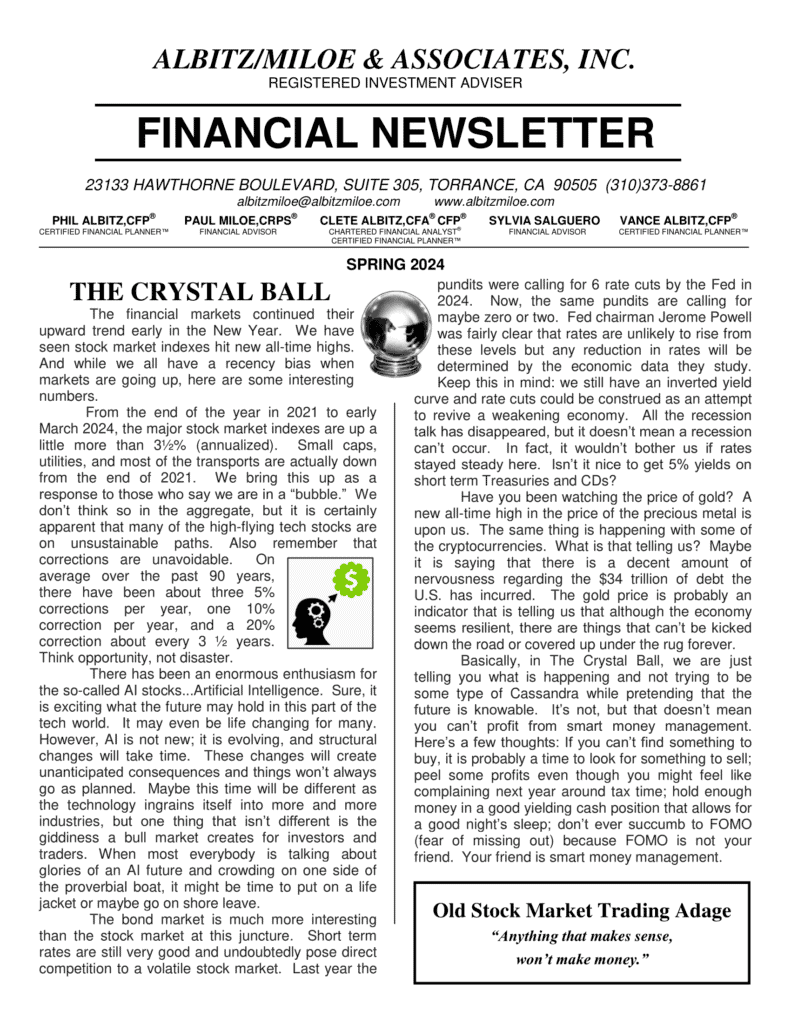As we proceed into 2022, note there have been changes to the Required Minimum Distribution (RMD) rules affecting what you may be required to withdraw from your retirement accounts each year. RMDs had a prior change that pushed the start date out to age 72 (from 70 ½). If you are age 72, or will attain age 72 during the year, you will need to take an RMD for that tax year.
One major change in 2022 is that the tables published by the IRS to determine RMDs were updated and now extend life expectancy to age 120. The material effect of the new tables is a decrease in the RMD. The tables to be used are found in IRS Publication 590-B, but, ironically, the IRS has not updated that publication as of this writing. The tables are available via other sources, so be sure to find the current table or check with your advisor prior to moving on your RMD to ensure the distribution calculation is correct. Our experience is that most financial custodians have implemented the new tables.
If you have an Inherited IRA account that you received prior to January 1, 2022, and are not the spouse of the deceased IRA owner, then you must recalculate your RMDs this year. For those using the Single Life Table, you must do a one-time “reset” on your calculation. Here, you need to go back to the year following the year of the owner’s death and find your life expectancy within the new table (not the deceased’s life expectancy). You then need to subtract 1 year from the updated life expectancy for every year since the initial distribution (RMD) to get to the proper divisor (factor) for 2022 and beyond. If you’re in this scenario, be sure to work closely with your advisors (tax and financial) to ensure this is done correctly.
Changes to available deductions this year have enhanced the tax advantages of making Qualified Charitable Distributions (QCDs). QCDs allow those over 70 ½ or with RMDs on IRAs to gift those funds to a qualified charity and avoid taxation on the income otherwise received. In 2022, the ability to claim a $300 (individual) or $600 (married) tax deduction on your return for those who don’t itemize was eliminated. That was a one-off deduction available in 2021. Likewise, in 2022, you can now only claim a deduction up to 60% of your Adjusted Gross Income (AGI) if you itemize (2021 permitted 100% of AGI). With these changes in place, the value of making a QCD has increased as the tax savings on the gifted funds can offset the lost deductions. QCDs are another area that require careful planning and should involve your advisors.





